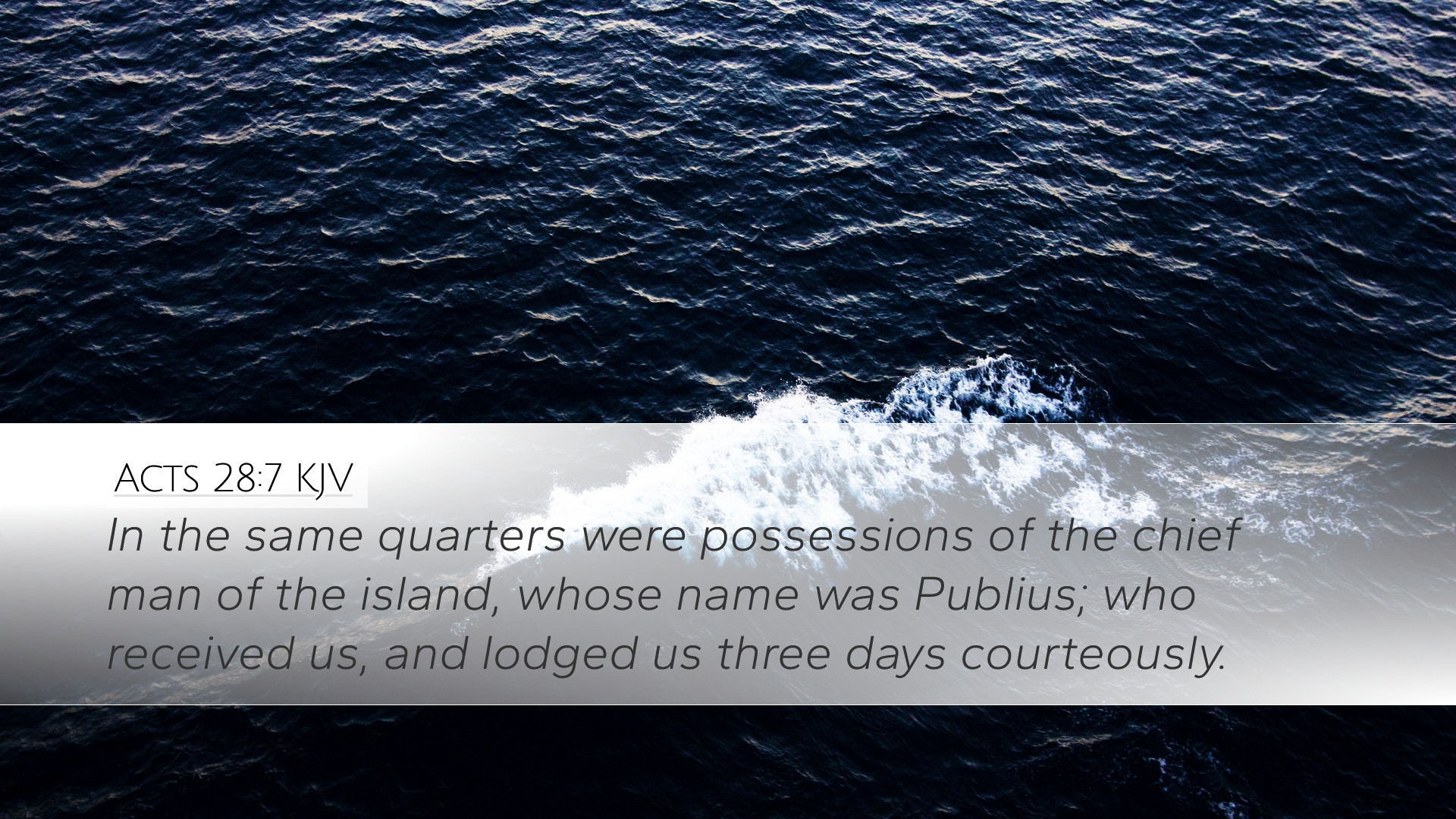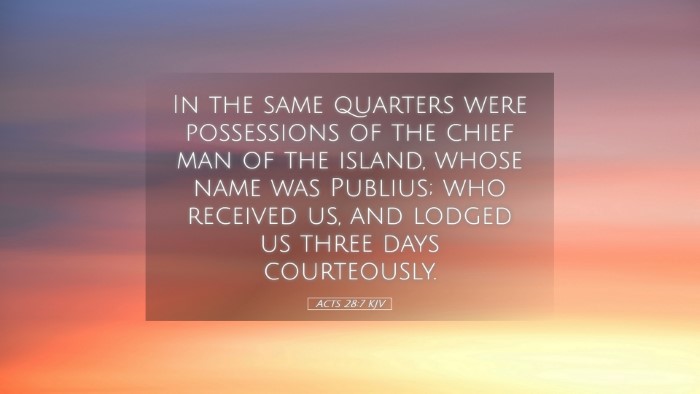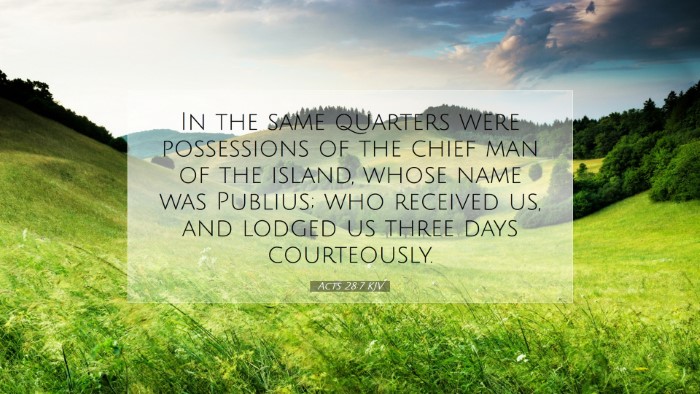Commentary on Acts 28:7
Verse Context: Acts 28:7 states, "In the same quarters were possessions of the chief man of the island, whose name was Publius; who received us, and lodged us three days courteously." This passage comes after Paul's shipwreck on the island of Malta, highlighting the providence and hospitality of God in unexpected circumstances.
Insights from Matthew Henry
Matthew Henry emphasizes God's providential care in Paul’s life, especially during the critical moments following the shipwreck. The key points from his commentary include:
- Divine Providence: Henry notes that the arrival on Malta was not random but part of God's sovereign plan, demonstrating how God guides His servants in their missions, even amid trials.
- Hospitality of Publius: The kindness of Publius, the island chief, illustrates the warmth of human hospitality. It underscores the theme that kindness can transcend cultural and social barriers.
- Spiritual Attention: The incident invites reflection on how God’s purposes are often served in unexpected ways. Paul’s presence on the island opens opportunities for evangelism and healing, which reflect the true nature of Christian mission.
Insights from Albert Barnes
Albert Barnes focuses on the personal influence of Paul and the strategic importance of Malta in the early spread of Christianity:
- Importance of Malta: Barnes points out that Malta served as a crucial stop for Paul, allowing him to reinforce the Christian message in a place that would not typically have been reached swiftly.
- Nature of Leadership: The reference to Publius as the chief man highlights the significance of engaging with influential figures. Barnes reflects on the potential of leaders to impact their communities positively through their encounters with the gospel.
- Miracles and Ministry: Barnes adeptly connects the actions of Paul in Malta with the miraculous signs in Acts, suggesting that such signs were not merely for display but served to authenticate the power of the gospel in new regions.
Insights from Adam Clarke
Adam Clarke's commentary delves into the cultural and historical nuances surrounding the text:
- Cultural Context: Clarke provides rich details on the practices of both the Maltese people and Paul, noting how their hospitality reflects a universal principle of human connection and support in times of distress.
- Religious Implications: He emphasizes that Paul’s lodging with Publius wasn’t merely hospitable; it was an instance of divine encounter where the gospel would be shared and the transformative power of Christ displayed.
- The Role of the Church: Clarke encourages modern believers to recognize their role in hospitality and evangelism, using this passage as a model for engaging with non-believers within various cultures.
Theological Reflections
This verse carries several theological implications:
- God's Sovereignty: This passage serves as a reminder of God's omnipotent hand guiding events, advocating for the belief that He leads believers through trials for greater purposes.
- Community and Mission: The hospitable act of Publius symbolizes the importance of building relationships and community in mission work. It raises questions about how believers engage with their surrounding communities.
- Evangelism Beyond Boundaries: The opening of Malta to Paul illustrates the boundless nature of God’s grace and the call to take the message of Christ into all cultures and societies.
Conclusion
Acts 28:7 encapsulates a profound moment in the narrative of Paul’s mission, illustrating God’s providential care and human cooperation in the advancement of the gospel. By studying the insights from esteemed commentators like Matthew Henry, Albert Barnes, and Adam Clarke, we are reminded of the interplay between divine activity and human agency. This verse challenges pastors, students, theologians, and scholars to embrace the call to hospitality, service, and proclamation in their own ministries.


